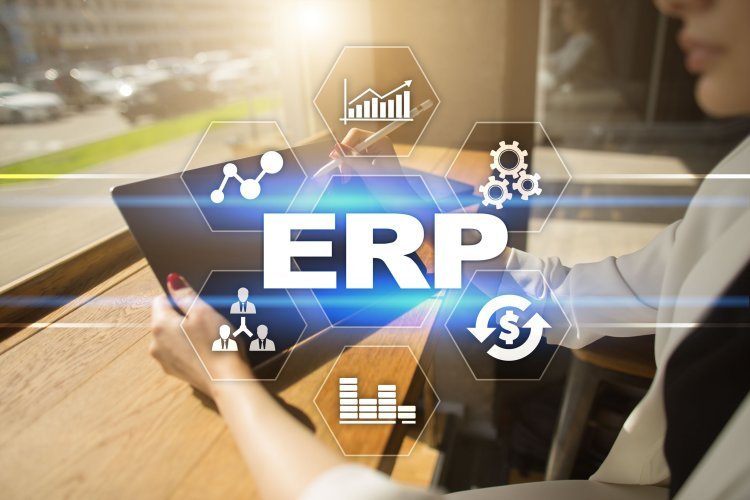ERP (Enterprise Resource Planning) Solution
ERP systems integrate various business processes and functions into a single platform, providing a comprehensive view of the organization's resources and operations.

Introduction to ERP
In today's fast-paced business environment, organizations are constantly seeking ways to streamline their operations and enhance productivity. One solution that has gained widespread popularity is Enterprise Resource Planning (ERP). ERP systems integrate various business processes and functions into a single platform, providing a comprehensive view of the organization's resources and operations.
Evolution of ERP Systems
The concept of ERP has evolved significantly since its inception. Initially, it emerged as Material Requirements Planning (MRP) software, which focused primarily on inventory management and production scheduling. Over time, ERP systems expanded to encompass a broader range of functions, including finance, human resources, and customer relationship management. In the digital age, ERP solutions have become more sophisticated, leveraging advanced technologies such as artificial intelligence (AI) and machine learning to drive efficiency and innovation.
Key Features of ERP Solutions
Modern ERP solutions offer a wide array of features designed to streamline business operations and drive growth. These include:
- Integration: ERP systems integrate data and processes across various departments, eliminating data silos and enabling seamless communication.
- Automation: By automating repetitive tasks and workflows, ERP solutions help organizations reduce manual errors and increase efficiency.
- Scalability: ERP systems are highly scalable, allowing businesses to easily adapt and grow as their needs evolve.
- Analytics: Advanced analytics capabilities enable organizations to gain valuable insights from their data, facilitating informed decision-making and strategic planning.
Benefits of ERP Implementation
The implementation of an ERP system offers numerous benefits to organizations of all sizes. Some of the key advantages include:
- Increased Efficiency: By streamlining processes and eliminating redundancies, ERP systems help organizations operate more efficiently and effectively.
- Improved Decision-Making: ERP solutions provide real-time visibility into key metrics and performance indicators, empowering decision-makers with the information they need to make informed decisions.
- Cost Savings: While the initial investment in an ERP system can be significant, the long-term cost savings are substantial, thanks to improved productivity, reduced errors, and better resource allocation.
Common Challenges in ERP Implementation
Despite the many benefits of ERP systems, implementation can be a complex and challenging process. Some common challenges include:
- Resistance to Change: Employees may be resistant to adopting new technologies and processes, leading to resistance and pushback during implementation.
- Data Migration Issues: Transferring data from legacy systems to the new ERP platform can be fraught with challenges, including data integrity issues and compatibility issues.
- Customization Complexities: Every organization has unique requirements, necessitating customization of the ERP system. However, customization can be time-consuming and expensive, leading to delays and cost overruns.
Choosing the Right ERP Solution
Selecting the right ERP solution for your organization is crucial to ensuring a successful implementation. To make an informed decision, consider the following factors:
- Assessing Business Needs: Identify your organization's specific requirements and objectives, and choose an ERP system that aligns with your goals.
- Evaluating Vendors: Research and evaluate multiple ERP vendors, considering factors such as reputation, industry expertise, and customer support.
- Considering Scalability: Choose an ERP solution that can scale with your business, accommodating future growth and expansion.
Case Studies: Successful ERP Implementations
Several organizations have successfully implemented ERP systems and reaped the benefits. For example:
- Company A: By implementing an ERP system, Company A was able to streamline its manufacturing processes, reduce lead times, and improve inventory management, leading to increased profitability and customer satisfaction.
- Company B: Company B implemented an ERP solution to enhance its customer service capabilities. By centralizing customer data and automating support workflows, the company was able to respond to customer inquiries more efficiently and provide a better overall experience.
Future Trends in ERP
The future of ERP is bright, with several exciting trends on the horizon:
- AI and Machine Learning Integration: ERP systems will increasingly leverage AI and machine learning to automate tasks, optimize processes, and provide intelligent insights.
- Cloud-Based ERP Solutions: Cloud-based ERP solutions will continue to gain popularity, offering greater flexibility, scalability, and accessibility.
- IoT Integration: The Internet of Things (IoT) will play an increasingly important role in ERP systems, enabling real-time monitoring and control of assets and processes.
Conclusion
In conclusion, ERP solutions play a vital role in helping organizations streamline their operations, improve efficiency, and drive growth. By choosing the right ERP solution and navigating the implementation process carefully, businesses can unlock a host of benefits and stay ahead of the competition in today's dynamic business landscape.
FAQs
-
What is ERP? ERP stands for Enterprise Resource Planning, which refers to a software system that integrates various business processes and functions into a single platform.
-
How does ERP benefit businesses? ERP systems help businesses streamline operations, improve efficiency, and make informed decisions by providing real-time visibility into key metrics and performance indicators.
-
What are the common challenges in ERP implementation? Common challenges in ERP implementation include resistance to change, data migration issues, and customization complexities.
-
How do you choose the right ERP solution for your business? To choose the right ERP solution, assess your business needs, evaluate vendors, and consider factors such as scalability and industry expertise.
-
What are some future trends in ERP? Future trends in ERP include AI and machine learning integration, cloud-based solutions, and IoT integration.
What's Your Reaction?










![Wireless Connectivity Software Market Size, Share | Statistics [2032]](https://handyclassified.com/uploads/images/202404/image_100x75_661f3be896033.jpg)


